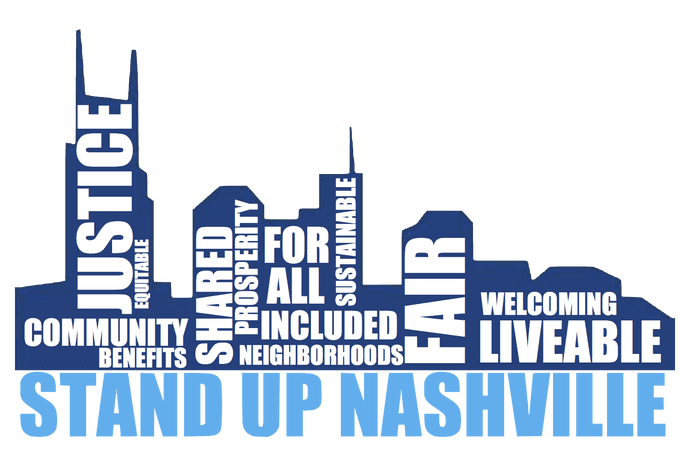A coalition of community groups and labor organized an open community meeting on Thursday (August 31 at 6:00 PM) to insure that the coming $1.2 billion expansion of Nashville International Airport benefits those left out of Nashville’s booming economy.
Stand Up Nashville Coalition members outlined the BNA Vision expansion of its facilities and services. They also argued that best practices from similar projects around the country could be used to include marginalized communities in development.
“The business-as-usual approach to workforce development is still leaving people behind when we spend millions on Nashville’s growth,” said Anne Barnett, Co-Chair of Stand Up Nashville, “We have a broken pipeline from places like North Nashville to high-quality careers, but it’s nothing that strong apprenticeships and high standards won’t fix.”
Stand Up Nashville has engaged the Nashville Airport Authority with a set of proposals to increase community access to the opportunities in construction and service jobs. The policies include the prioritizing of high-road construction contractors with strong safety records and apprenticeships, over lowest bid contractors that use temporary labor services. The Coalition also presented a Cleaning Workers’ Bill of Rights that guarantees a living wage, sick leave, and worker protections to the many custodial workers and other permanent positions under contract at the airport.
Of particular importance to the crowd of 200 at Mount Zion was the proposal for a Targeted Hire Policy that reach into Nashville’s designated Promise Zones where the average unemployment is 14% and poverty is 34%. “When people in North Nashville, Napier, and Edgehill see cranes over their neighborhood and read about billion dollar projects they wonder when their struggles will change,” said Odessa Kelly, Stand Up Nashville Co-chair. “They see the same temp jobs, the same low pay, while the cost of living and working in Nashville keeps going up. We know things can change if we stand up for our community.”
Stand Up Nashville called on attendees to get involved, go to Metro Council Meetings, and contact the boards and commissions that make decisions about how public resources are spent. The Coalition previewed other projects that could have the same kind of community inclusion the crowd longed for.


